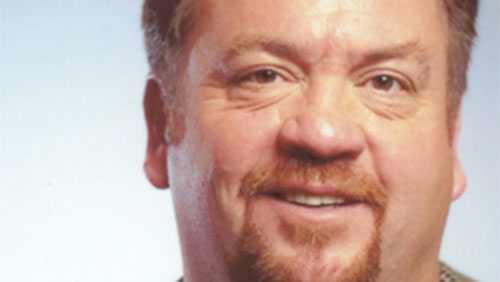 Few occasions better illustrated the cultural divide between the world of the western bottom-up entrepreneur and that of Ottawa’s top-down public service bureaucracy than when Jim Shaw and Konrad von Finckenstein crossed swords in a hearing room.
Few occasions better illustrated the cultural divide between the world of the western bottom-up entrepreneur and that of Ottawa’s top-down public service bureaucracy than when Jim Shaw and Konrad von Finckenstein crossed swords in a hearing room.
There, front and centre of the raised platform bearing commissioners, would be the multilingual Von Finckenstein, a six-foot-something-awesome lawyer who was chief legal adviser on the original North American Free Trade negotiations, served as head of the Competition Bureau, became a Federal Court justice and was, from 2007-2012, chairman of the Canadian Radio-television and Telecommunications Commission (CRTC).
No one builds a career that successful in Ottawa without understanding and adhering to process, legislated duty, the rule of law, and knowing when and to whom to defer and how and when to totally dominate the room.
Below, at the CRTC intervenors’ table, representing the Alberta-based cable company his father J.R. Shaw built, would be an often shaggy Jim Shaw, who died earlier this week at age 60, and his Shaw Communications colleagues – most memorably Peter Bissonnette, the late Charles King and Jean Brazeau.
Legend had it that none would wear a tie when at a CRTC hearing because Jim, who dropped out of university before starting at Shaw as a cable installer, wouldn’t wear one. And Jim wouldn’t – or so many within the CRTC believed – because normally he didn’t and he wasn’t going to put one on just to kowtow to a bunch of fancy-assed eastern regulators whose purpose and policies he, like many Canadians, struggled to make sense of.
The clashes would be epic – and never more so than when Shaw had his company withhold $56 million in annual payments to the Canadian Television Fund beginning in late 2006 because, in his view, it was a waste of money spent on programming no one watched. Quebecor followed and, as a result and after many venomous exchanges, alterations were made to what has since become the Canada Media Fund.
Often red-eyed, always cantankerous and at times appearing unwell, Jim Shaw would rebut Von Finckenstein’s searches for common ground, taunting the chairman and declining to engage in the rhetorical ring-kissing so commonly practised by masters of the mystical art of regulatory affairs. Von Finckenstein, his testosterone boiling, would respond by verbally pawing the ground and then – kaboom.
Those of us with front-row seats in this theatre found its spectacle so arresting that at times it was impossible to determine whether one was in shock or awe.
But whatever Jim Shaw had to say was, if unpleasantly blunt, honest. One was never left wondering “So what do they really think?” and could always trust that there was nothing said behind one’s back that was not said to one’s face.
To the brass-balled entrepreneurial crowd, Shaw was a rootin’, tootin’, six-gun shootin’ hard-nosed businessman who, on the back of a cocktail napkin, executed a strategically brilliant cable territory swap with Ted Rogers, competed ferociously with Telus and, swallowing hard to survive the squeeze from New York bondholders, pulled Global television from the Canwest inferno to give his company the one thing it needed to be a national player: content.
To the genteel cultural elite, he was a crass boor, bereft of grace and polish, and appearing disinterested in the welfare of anything or anyone beyond his family and closest confidantes.
Len Katz, a former colleague and past CRTC vice-chair of telecommunications, puts it this way:
“Jim was a very astute businessman but in a very unique manner. He hated lawyers, which was not unusual as he didn’t have a formal education and couldn’t relate to them on a peer-to-peer basis. The regulatory process intimidated him because it was so legalistic and he was a cowboy. He understood how to please customers.”
“Cowboy” Jim Shaw worked and lived hard. Few in the know were surprised when, following a particularly unsettling public moment in November 2010, his father – who at a company annual general meeting that followed expressed remorse for his blindness to the burdens of leadership he had place upon his eldest son – turned the position of chief executive officer over to his younger son, Brad. He, with Bissonnette at his side until 2015, has by all accounts managed the company masterfully.
But change was already in the wind when, two months earlier, it was Brad Shaw who – with his parents watching – was in charge of the company’s presentation at the CRTC hearing in Calgary, chaired by Von Finckenstein, that approved Shaw’s takeover of Global.
Strikingly, everyone at the Shaw table was wearing a tie. That’s when it became clear the cowboy was no longer in the saddle.
Peter Menzies is a former newspaper publisher who served as a CRTC Commissioner for 10 years.
The views, opinions and positions expressed by columnists and contributors are the author’s alone. They do not inherently or expressly reflect the views, opinions and/or positions of our publication.


